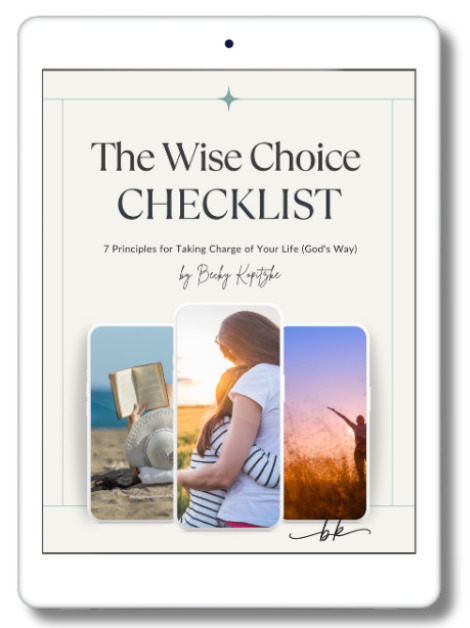Can You Love People and Still Not Want to Be Around Them?
Oct 28, 2025
My daughter has a sweatshirt that says, “People: Not a Fan.”
What can I say, she’s an introvert, and quiet kids gotta claim their space in the world, too. Passive aggressive though it may be.
We often discuss what it really means to “dislike people.” Not comfy in crowds? Totally understandable. Hate group assignments? Who doesn’t. Especially if you were the kid who did all the work and earned everybody else an A.
And yet, the Bible does say it’s not good to be alone. People were made to be in relationship with one another—we mere humans created in the image of a triune God, who has always been in relationship with Himself: Father, Son, Holy Spirit. Even just one or two close friends fits the call.
But here’s where it gets tricky for those of us who need our space.
How do we balance our legitimate need for solitude with God’s clear command to love one another? Because the Bible isn’t subtle about this. There are 59 different “one another” verses in the New Testament. Fifty-nine!
“Be kind and compassionate to one another…” (Ephesians 4:32)
“Live in harmony with one another…” (Romans 12:16)
“Carry each other's burdens…” (Galatians 6:2)
“…Pray for each other.” (James 5:16)
And the big one—repeated 15 times across six books: “Love one another.”
So can you love people and still not want to be around them all the time?
I think the answer is yes. And I think we need to stop feeling guilty about it.
Community doesn’t mean constant togetherness. Even Jesus withdrew to solitary places to pray (Luke 5:16). If the Son of God needed to get away from people to recharge, then needing space doesn’t make us less holy. It makes us human.
The problem isn’t that we need solitude. The problem is when we use our need for space as an excuse to completely opt out of the one-anothers. There's a massive difference between “I need to recharge” and “I'm going to avoid all meaningful connection because people are exhausting.”
One is healthy self-care. The other is just hiding.
If you’re guilty of it, then solidarity, sister, because so am I, and so is my daughter, and so are thousands or maybe millions of other believers. We’re in good company, introverted friends.
But I do wonder if we need to confess: even introverts need community.
In the Garden of Eden, before sin entered the world, Adam enjoyed a perfect, unbroken relationship with God. He worked with and for God, naming the animals (Genesis 2:19-20). He was literally serving God in paradise. No distractions, no stress, no doomscrolling creeping into his quiet time.
And yet God looked at Adam and said, “It is not good for the man to be alone” (Genesis 2:18).
Not good.
Adam had everything—a perfect relationship with his Creator, meaningful work, a beautiful home. But without another human to do life alongside, something was missing. God declared it incomplete.
If Adam couldn’t thrive in isolation despite having direct access to God Himself, what makes us think we can?
We need people. Not throngs of them, necessarily. Not constant social stimulation. But we need a handful of souls who know us, challenge us, pray for us, and remind us we’re not alone in this broken, beautiful life.
The question isn’t whether we need community. It’s what kind of community we need.
Your community doesn’t have to look like anyone else’s. It’s okay not to spread yourself thin trying to be friends with everyone when you’re investing deeply in a few. That’s not a flaw in your faith; it’s a feature instilled in you by the perfect Creator.
So let your extroverted friends energize rooms full of people. You can bless one person at a time over a cup of tea. Both are valuable. Both are needed. Both are obedient to the call to love one another.
You can serve God and still need a nap afterward. You can love people and still require solitude. And you can honor the one-anothers without becoming someone you’re not.
The goal isn’t to transform into a people person. Believe me, I couldn’t change my daughter’s disposition (or her wardrobe of passive-aggressive graphic tees) if I tried.
The goal is to love like Jesus—and He loved people deeply, not just in groups but also one-on-one, even as He regularly pulled back from those people to be alone with the Father. He understood the rhythm of pouring out and filling back up.
So can we.
People: not a fan? It’s ok. Because Jesus is a fan of you. And He’s asking you to love just a few of them—in your own way, at your own pace, with the grace He gives you first.
“For where two or three gather in my name, there am I with them.” (Matthew 18:20)






